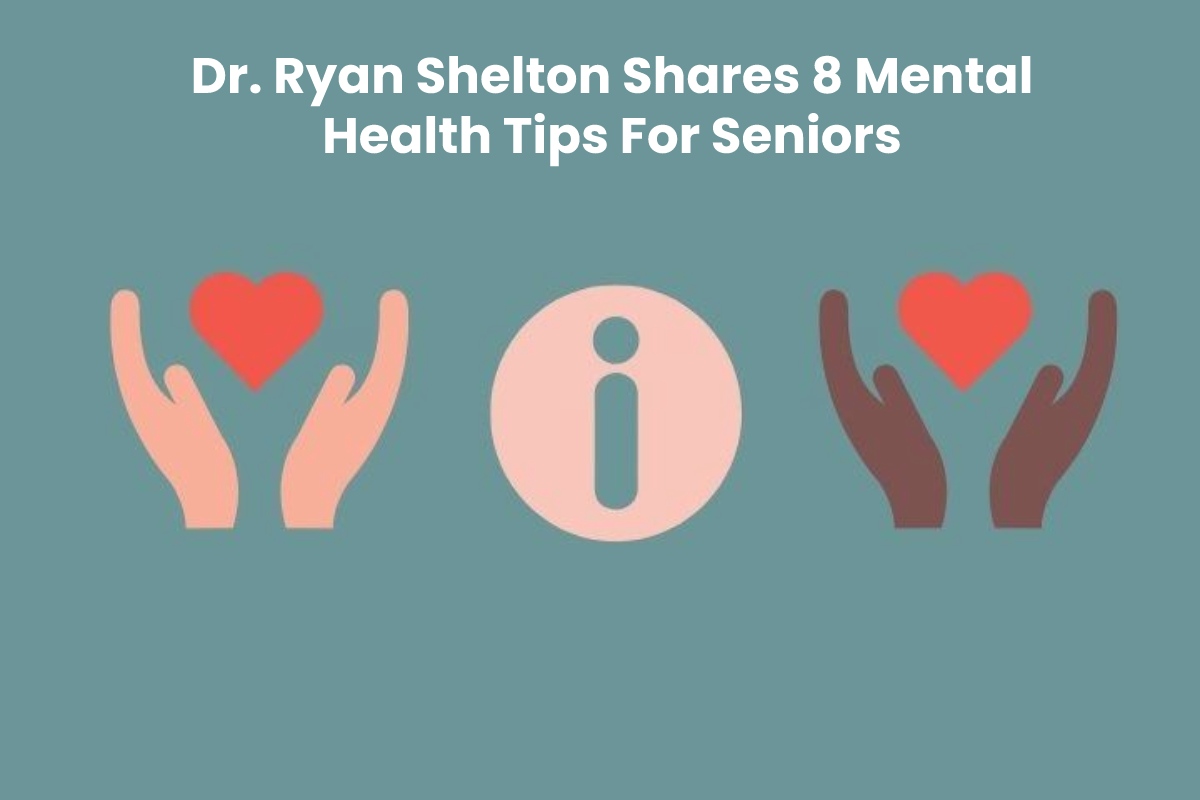Mental Health Tips – Depression affects millions of Americans each year, and it impacts seniors more than any other age group. People who are elderly sometimes have trouble recognizing signs of depression or may isolate themselves from family and friends because they don’t want to burden others. Depression is a serious issue that needs to be dealt with as soon as possible to avoid further damage, making it important for seniors to know how to recognize the symptoms of depression and take action.
Here are some tips from Dr. Ryan Shelton that will help seniors manage their mental health.
Table of Contents
1. Mental Health Tips like Recognize The Signs Of Depression
Symptoms of depression can be difficult to notice in older adults because they are often attributed to aging or other health problems. Still, some signs stand out among seniors who are depressed. According to the Mayo Clinic, some signs of depression include loss of interest in favorite activities, weight gain or weight loss, sleep problems, constant fatigue, irritability or anger, lack of concentration, and feelings of worthlessness. Since these are common symptoms for various health conditions, it can be hard to notice if a senior suffers from depression.
2. Mental Health Tips – Avoid Isolation
One of the early signs of depression is isolation. Seniors often withdraw from family and friends because they don’t want to be a burden or feel like no one understands what they’re going through.
When seniors spend most of their time alone in their homes, it becomes easy to become isolated and suffer in silence. Isolation can make depression worse, so seniors must reach out and spend time with loved ones whenever possible.
3. Exercise Daily
If you’re not already exercising regularly, this is a great tip for seniors suffering from depression because it helps manage several symptoms of the condition. According to the Mayo Clinic, exercise has numerous benefits for people suffering from depression, including improved self-esteem and mood, decreased feelings of fatigue, relief from stress and anxiety, and more.
4. Eat Healthy Foods
Make sure that you’re eating healthy because diet plays a part in how your body reacts to certain conditions, including depression. Seniors who eat lots of processed foods and drink soda often experience more mood swings and problems with mental clarity. Eating healthy foods like fruits, vegetables, lean meats, and whole grains will help you feel better physically as well as mentally.
5. Stay Active
Sometimes seniors become less active as they age because it takes longer to recover from injury or illness. Still, it’s important to stay active as much as possible to avoid feeling depressed. Regularly taking walks with your loved ones is a great way to help them stay fit while spending quality time together, but you can choose other activities like gardening or playing catch if walking isn’t an option for you. Exercise releases endorphins which naturally improve your mood, so it’s important for seniors to stay active to help manage their depression.
6. Try New Experiences
Depression often leads people to withdraw from new or uncomfortable situations, but forcing yourself out of your comfort zone can be empowering and give you a sense of accomplishment. Whether it’s trying new food, traveling to a different country, or taking dance classes, new experiences are sure to help you feel more alive, which will have an impact on your mental health.
7. Create An Emergency Plan
As seniors age, it’s important for them to make plans in case they need help during an emergency. If you live alone or only see friends and family occasionally, it’s a good idea to make an emergency plan and share it with someone you trust. Having a plan in place can help relieve some of the stress that comes with aging because you won’t have to worry about figuring out what will happen if something goes wrong.
8. Seek Help From Professionals
If your senior loved one is suffering from depression, encourage them to seek help from a professional. It can be hard for seniors to admit that they’re struggling, and getting help isn’t always easy, but it’s the best way to manage the condition and get back to enjoying life.
Conclusion
Depression takes a huge toll on seniors, but it doesn’t have to take over their lives. If you or an aging loved one are suffering from the condition, consider following these tips from Dr Ryan Shelton and share them with others who might benefit from this information.

